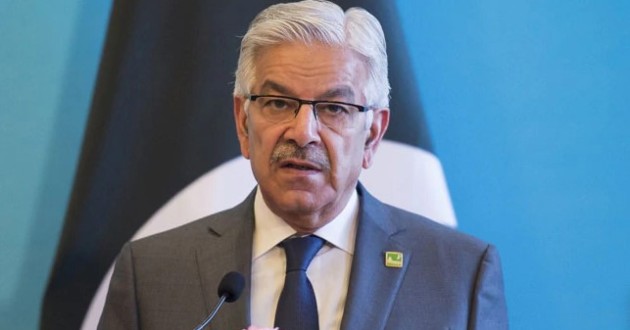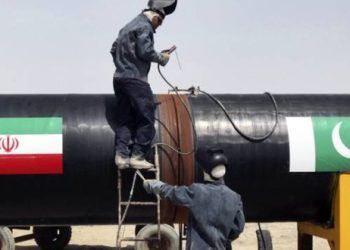ISLAMABAD: Despite repeated warnings of “sanctions” from the United States (US), Defense Minister Khawaja Asif expressed optimism regarding the Iran-Pakistan gas pipeline project, hoping that obstacles will be overcome and the project will proceed to completion.
In a discussion with a private TV channel, Asif called for regional stakeholders to unite in safeguarding their interests amidst regional turmoil and the increased involvement of powerful European and Western nations, particularly in relation to Israel.
He hailed Iranian President Seyyed Ebrahim Raisi’s “successful” visit to Pakistan as a significant development, particularly in advancing the stalled pipeline project amid geopolitical challenges and international sanctions.
Asif’s remarks come at a crucial juncture, with the United States hinting at the “potential risk of sanctions” multiple times this week, particularly concerning business agreements between Iran and Pakistan following President Raisi’s visit.
The minister criticized the double standards of Western nations, especially regarding Israel’s actions compared to those of other countries worldwide.
He emphasized that terrorism poses a common threat to both Iran and Pakistan, underscoring the need for joint efforts to combat it.
Asif stated that despite any discomfort caused by the Iranian president’s visit, Pakistan and Iran remain committed to fighting terrorism together, highlighting their longstanding bilateral relations.
He explained that logistical constraints, particularly security concerns, prevented the government from organizing a large-scale meeting during President Raisi’s visit.
These statements by the minister are significant in light of the 28-point joint statement issued by the Foreign Office, which outlined agreements between Iran and Pakistan on energy cooperation, including electricity trade, power transmission lines, and the pipeline project.
Despite US advisories against business dealings with Iran and warnings of potential sanctions, Pakistan remains engaged in energy cooperation agreements with its neighbor.













